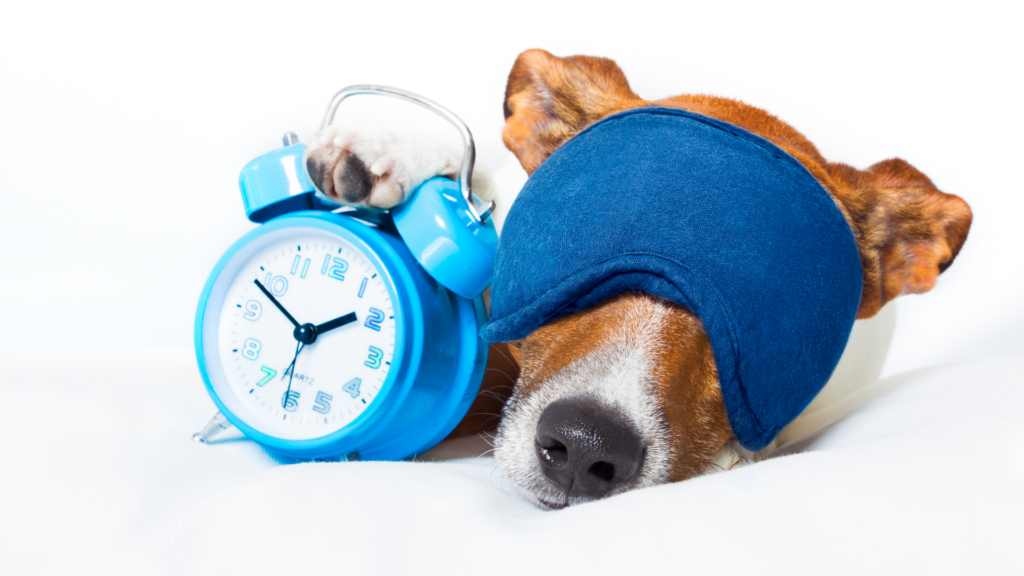We all know dogs love sleeping. In fact, the average dog requires about 12 – 15 hours of sleep per day – but that doesn’t necessarily mean their brain is also at rest.
By measuring sleep studies and MRIs, which reveal brain activity that shows us interacting with dreams while in a sleep state, science has known for a while that humans dream. However, when it comes to dogs, the findings haven’t always been so black and white.
So how do we know if dogs are dreaming while sleeping or not, and if they are, what are they dreaming about? The answer lies half in the science, and half in their daily experiences. Read on as we explain.
Proof That Pups Dream
Dreams help humans remember things, tap into our creativity, and even better process our emotions – and, thanks to science, we know dreams work in the same way for dogs!
How do we know this?
It all started when MIT researchers wanted to know if animals dreamed like humans. So, they began by monitoring the brains of rats while they were awake as they performed certain tasks, like running and eating. Then, they compared that brain activity to the brain activity of the rats as they were sleeping and discovered it was very similar.
This finding indicated that rats were dreaming the same way humans do, and eventually led to the finding that all mammals dream as a way to process information and experiences from our waking lives.
How to Tell if Your Dog is Dreaming
Just like humans, dogs only dream when in a deep REM cycle. As such, it’s more likely that your puppy or senior dog is dreaming more often than the average adult dog. That’s because the pons – a part of the brain stem responsible for paralyzing large muscles during sleep – is underdeveloped in young dogs, and wearing down in old pups. This means their muscles are more likely to become active during sleep than a regularly active adult dog.
When it comes to how often dogs dream, their age and size matters. For example, smaller dogs tend to dream more often during the night, with a new dream about every ten minutes. Larger dogs, on the other hand, may dream only every so often. Whatsmore, puppies and senior dogs dream more regularly than adult dogs.
You’ll know your dog is dreaming when they exhibit signs of twitching, chattering, or moving their paws while sleeping. They may even breathe heavier or nip at the air. Alternatively, if they’re having a nightmare (yes, dogs get nightmares, too!), they may start snarling, growling, or crying out in their sleep. Regardless of your initial impulse to wake them, try and restrain yourself from doing so and follow the old adage “let sleeping dogs lie.” Otherwise, you could risk them unknowingly lashing out at you due to waking up suddenly from a deep sleep confused and disoriented.
So, What Is Your Dog Dreaming About?
As we mentioned earlier, dogs dream as a way to process new information and experiences from their day. So if they spent the day bird watching from the balcony, their dreams will likely be filled with birds in flight. Alternatively, if they spent the day with you at the dog park, they’ll likely dream about chasing other dogs and, of course, spending time with you!
While science still hasn’t proven whether dogs can remember their dreams or not, we can say with confidence that they do dream, so the next time you see them twitching or running their paws as they sleep, you know they’re dreaming about the fun-filled day they had.



When a dog wakes up from a dream do they know it was a dream or do they think the events in the dream actually happened?
My 11 year old, labrador retriever dreams all the time.He is constantly twitching, sniffing and snoring very heavily while he sleeps. So I think older dogs may dream just as much or more than the younger ones. I feel like he is so content when he is dreaming like that. You can’t help but love the old senior dogs. Thank you for this column. I enjoyed reading it.